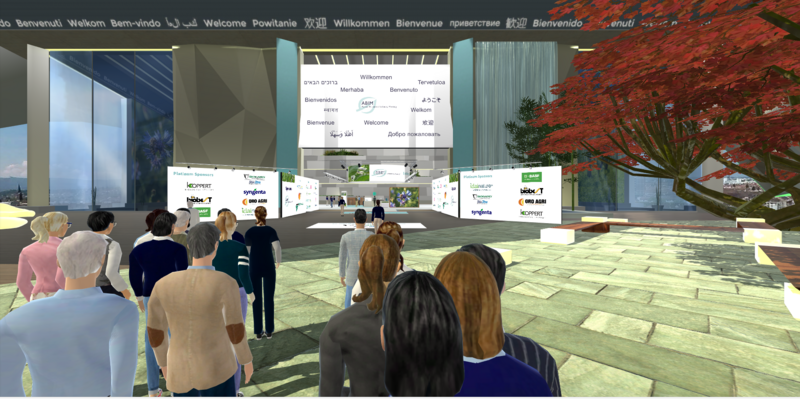
Corona measures meant that the Annual Biocontrol Industry Meeting was held online as a virtual conference for the first time in its 15 years’ existence last week. The Koppert team members who participated said they missed the valuable networking opportunities that this global meeting place annually offers the biocontrol industry. As a company, Koppert has participated since 2006.
Former IBMA president and Koppert’s governmental and regulatory affairs expert, Willem Ravensberg, said the conference showed that the transition to new farming methods in the EU was still too slow, with little progress for change to more sustainable IPM approaches in agriculture. Neither the Common Agricultural Policy of the EU (CAP) nor Sustainable Use Directive (SUD) were achieving their goals.
‘There were more rather than fewer hurdles for the registration of biocontrol products, and the General Food Law which comes into effect in March 2021 will make matters even more difficult for smaller companies. Positive developments included the EU reviewing data requirements for microbials, the training of product evaluators, and certain EU policy changes, but this process is too slow to meet the industry’s requirements. Positive developments presented at the conference included a number of new technical innovations such as the use of drones, automation, monitoring techniques, big data, and many others.’
More complexities on the regulatory front
Global Manager Regulatory Affairs, Evert Hamblok: ‘‘We hardly see any acceleration and global harmonization when it comes to the registration of biological pesticides. We still believe that a new framework is necessary. Within the existing framework we see that the requirements are becoming even more stringent. When it comes to our beneficials, we see the compliancy question ramping up slightly. We need to be cautious about that and act jointly. The conference was a very frustrating one for our team as we all aim to speed up the market access procedures.’
‘What became apparent from the questions and queries at the conference is that we need a clearer narrative and vision on how we see our contribution to sustainable agriculture. By sharing more product knowledge and information about what we produce, we can counter-balance the regulatory complexity, the doubts and discussions. Participants at the conference encouraged us to be proud of what we stand for, to stand up, seek partners and alignments with others in the industry. We need to find creative ways of showing people that our products are safe and can be trusted to ease up the regulatory process.’
Evert’s comments can be viewed in the video below.
Biocontrol in agriculture progressing
Director Agri, Martin Koppert, said it was heartening to see that biocontrol, originally aimed at horticulture, was now spreading to the major agricultural crops and that the conference reflected the desire for biocontrol to be truly integrated into the way all crops are grown.
‘Agri markets are the next frontier for the biocontrol industry and the market is clearly large enough for all of us to play a role. Biocontrol products and the need for a holistic approach in agriculture have a huge potential to transform the sector from an extractive activity that does harm to the planet to a regenerative industry that builds a more sustainable future. Few companies have the mix or macro and micro products that Koppert has. This is our unique strength and we need to engage more with stakeholders along the value chain and coordinate the transformation of the food sector as a whole. Biocontrol is only one part of what is needed to make food truly healthy and sustainable.’
‘The integration of digital and biological tools to drive customer value continues to be an inadequately discussed topic in the biocontrol industry. One great example is a bioprotection portal that allows growers to search for bioprotection solutions for their crops, and in turn allows us to track what growers are interested in. This digital tool to bridge the information gap between the industry and the growers was recently launched by CABI with support from Koppert. Like Koppert, several other industry members are engaging with predictive models to improve the efficacy of their R&D efforts, or the timing of biocontrol applications. These innovations are ways to improve the efficacy of biocontrol and drive more adoption by the market. We are still in the infancy of “AgTech” and we must go forward with open minds.’

Promoting a ‘farm to fork’ strategy
Corporate Director Marketing, Peter Maes also attended the ABIM conference: ‘As an association that we have been a part of from the start, I feel that we now need to move away from all legislative and regulatory complexities to a simpler ‘farm to fork’ strategy, so that the whole process of getting our biocontrol products on the market gains momentum through a more focussed procedure. We need a clear dot on the horizon to work towards and that is now often lacking. This would accelerate Europe’s progress in the Green Deal.’
